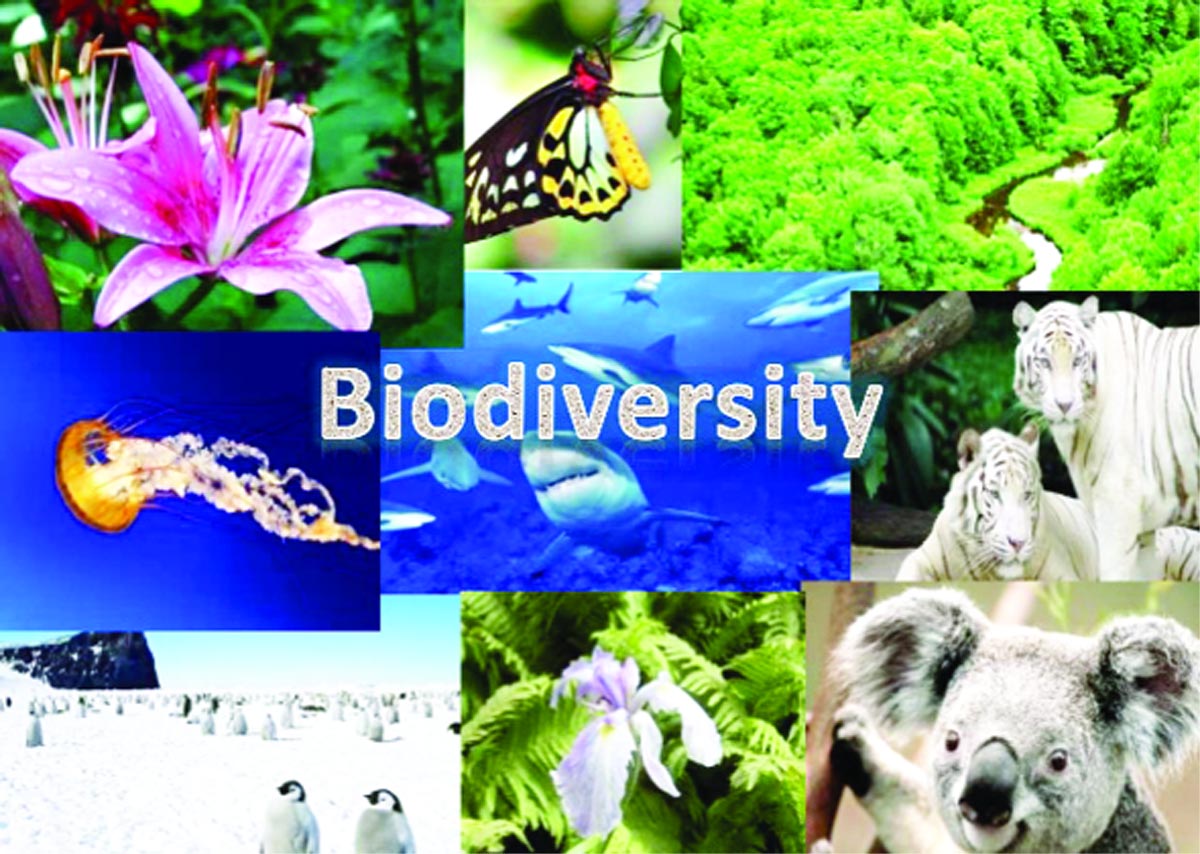Biodiversity Conservation Threatens In Nigeria

By Femi Akinola
Nigeria is a country rich in biodiversity but it is undervalued, says the Nigerian Youth Biodiversity Network (NYBN) and Sustainable Food And Agriculture Initiative (SEFAAI).
Both, non-governmental organisations defending Nigeria’s biodiversity, stated this at weekend in Lagos during a media workshop on the Realisation of the Post 2020 GBF in Nigeria.
While addressing participants at the one day workshop, the national coordinator of Nigerian Youth Biodiversity Network, Olusegun Michael Ogundele noted that biodiversity is undervalued in the country and that the nation’s biological resources are continually threathened by increasing rates of ecosystem degradation and biodiversity loss.
He said the main causes of biodiversity loss in Nigeria are habital loss and fragmentation.
According to him, much about biodiversity is not known to majority of Nigerians noting that it plays a vital role in the livelihoods and survival of many Nigerians.
”Biodiversity provides diverse ecosystem services, such as food, raw materials, medicine, and aesthetic values.
”Nigeris’s rural population is highly dependent on the country’s various forms of biodiversity. About 70% of the Nigerian households, mostly in rural and semi-urban areas, rely heavily on firewood consumption for their domestice and energy needs. Tourism is one of Nigeria’s fastest growing industry and is reliant on wildlife, nature reserves, resorts, and an abundant water for recreation, ” he said.
On his part, Mr. Aderibigbe Abiodun of SEFAAI said there is need for biodiversity conservation in Nigeria.
According to him, biodiversity conservation in the country faces many challenges, such as conflicting government policies and laws, poor enforcement and compliance, inadequate capacity and data, limited public awareness and education, low stakeholder’s participation, and inadequate funding for advocates of biodiversity conservation.
Aderibigbe further explained that these challenges often hindered effective implementation of the national and international commitment and obligations that Nigeria is a signatory to towards protect and sutainably use of its biodiversity.
He opined that biodiversity conservation in Nigeria will offer Nigerians different opportunities such as enhancing economic development, food security, poverty reduction, health and resilience.
He said much about biodiversity is not known to the Nigerian public like the climate change adding that the latter is part and parcel of biodiversity which is yet to be known acccpordingly by Nigerians.
He said: ”We are using this workshop to bridge the knowledge gap about biodiversity in Nigeria and to guide Nigerians on biodiversity conservation activities in the country as contained in post 2020 GBF.”
On the 2020 GBF guidelines, Ogundele, the NYGB national coordinator, listed 23 points that serves as guide to ensure biodiversity conservation in Nigeria. ”Part of the objectives of this workshop is to popularise the uptake and domestication of the Post 2020 GBF in Nigeria, and to increase the knowledge capacity of stakeholders, the youths and the media communities on biodiversity education and knowledge generation.
During the workshop, it was learnt that Nigeria is rich in biodiversity, with diverse natural ecosystems and many species of plants, animals and microorganisms.
This was confirmed through the report on forest crime in the country as captured recently by the National Strategy for Combating Wildlife and Forest Crime in the country (2022 -2026).
In the report, Nigeria is home to over 864 species of birds, 117 amphibians , 203 reptiles, over 775 species of fish, 285 mammals, over 4,715 vascular plants and many other undocumented species.
The country’s natural ecosystems range from semi-arid savanna to montane forests, rich seasonal flood plain environments to rainforests, and vast fresh water swap forests to diverse coastal vegetation.
The Niger Delta region of the country is regarded as one of the global diversity hotspot because it contains the largest mangrove forest in Africa, covering one million hectares out of the 3.2 million hectares of mangrove forest in Africa.
Findings also revealed that the region hosts 11 Ramstar sites, which are wetlands of international importance, covering 1,076,728 hectares.
In addition, Nigeria has seven designated national parks, 32 game reserves, 994 forest reserves, two World Heritage sites, and one biosphere reserve, covering about 10% of its land area.
However, these protected areas are not representatives of the country’s biodiversity and ecosystems.
Virtually all these faces many challenges such as inadequate mangement capacity, funding, encroachment, illegal activities and conflicts with local communities.
According to Ogundele, Nigerians need to know more bout biodiversity conservation to address the threat of habita loss and fragmentation.
He suggested that the country needs to adopt and implement integrated land use planning and management approches that will balance the competing demands of different sectors and stakeholders for land and natural resources.
Aderibigbe on his part, noted that Nigeria needs to strengthen and expand its network of protected areas and other effective area-based conservation measures, such as community conserved areas, sacred natural sites, indigeneous and local community conserved areas and private reserves saying, ” protected areas are the cornerstone of biodiversity conservation.”
